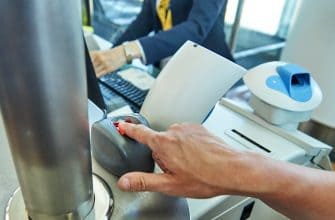In order to qualify for a UK partner visa, one of the things you have to do is meet the financial requirement.
This is something that you can’t get around or avoid and is set out by the current Immigration Rules of the UK.
You must earn above the Minimum Income Threshold and this is something that can be done in a couple of ways.
We’re going to help you understand how you can meet the minimum income threshold for UK partner visas by using cash savings.
The income threshold is something that you need to understand and know about because every UK partner visa application has to meet this threshold. Your application will not be successful if you’re not able to meet the income threshold in one way or another. As mentioned above, there are a couple of ways in which you can do this.
The first way to do it is by earning a minimum of £18600 annually. This figure does increase with each dependent that will be moving to the UK with you. For example, if you have a child who is not British and is dependent on you, the figure needed as a minimum annual income will increase. So, you’ll need to work out exactly what the threshold will be for your particular family circumstances.
The other option is to meet the cash savings requirement. If you have £62500 in cash savings, this can replace the income threshold. It’s a lot of money, but if you do have that amount of money in savings and don’t have a regular income, you can still meet the financial requirements needed to have a UK partner visa application accepted.
It’s also important to know that your income and your cash savings can be combined. This means that if you don’t quite meet either requirement, you can combine them and meet the financial requirements that way instead.
If you do need to combine your income and your cash savings in order to meet the relevant financial requirements, it’s important you understand how this is calculated. It’s not too complicated but there are specific rules in place that you have to follow. These calculations are the ones that the Home Office will use when judging your application and deciding whether or not you meet the financial requirements.
In order for you to be able to combine your cash savings with your income, you must first have minimum savings of £16000. From there, you can calculate how much income you have to use to cover up the remaining amount required to have your UK partner visa accepted by the Home Office. Below, you can find out about the particular method used to work out this figure; all it takes is 3 easy steps:
A) Your amount of savings – £16000 = X
B) X ÷ 2.5 = Y
C) £18600 – Y = the amount of annual income you need
Here’s a clear example of how this would all play out and how the calculations would work if you had cash savings of £25000:
A) £25000 – £16000 = £9000
B) £9000 ÷ 2.5 = £3600
C) £18600 – £3600 = £15000
So, in this example, you would need to have an annual income of £15000 if you have savings of £25000. You can work out how much income you’ll need to have by using this same calculation with the amount of cash savings you currently have.
There are a couple of limitations with this solution that you should be aware of before going any further though. This rule of combining your cash savings with your annual income doesn’t apply to people who are directors of limited companies in the UK. It also doesn’t apply to people who are classified as self-employed.
General Cash Savings
The first way in which you can meet the income threshold using cash savings is to simply use your general savings. This might be money that you’ve been saving in your account for many years and have been adding to and building up gradually. This is the most obvious and common way in which people meet the income threshold using savings.
There are some rules that you have to be aware of though. For a start, you have to have received the money legally. That’s probably pretty obvious to most people, but the origin of the cash may be looked into, so it’s important to emphasise this. The money can be given to you as a gift but this usually needs to be declared as such.
There’s a general rule in place that the money has to have been in your account for a period of 6 months prior to your UK partner visa application being submitted. It’s important to remember this when you’re making your application because you might have to hold off your application if the money hasn’t been in your account for that long.
Using Investments
You don’t actually have to have the money sitting in a bank account in the conventional way though. Instead, you can use investments if you want to as well. You need to be able to show that the shares you own have been yours for a period of 6 months before you submit them as part of the application, as is the case with your cash savings.
They also still have to meet the cash savings required for the application to be successful. It all works the same as it would if you were using regular cash savings. You don’t have to sell the investments for that value to be included as part of the application. The value of the investments is what is judged.
You can use investments of various kinds if you do want to use investments to ensure you meet the income threshold for a UK partner visa. They can come in the form of stocks, bonds, shares and trust funds. As long as your investments fit into one of those categories, they’re allowed to be included in the visa application you submit to the Home Office.
Income From Property Sales
You can also use income and savings derived from a property. If you recently sold a property, for example, you can use the income that’s left after you paid off the mortgage attached to the property when applying for a partner visa. You have to prove that the property was owned by yourself, either solely or jointly with a partner for at least six months.
You will also have to provide Land Registry documents or the foreign equivalent if the property was owned outside the UK. Your solicitor or the agent carrying out the sale of the property will also have to provide a letter that’ll be submitted alongside your application. It’s also important to prove that the tax payment from the sale of the property had been made.
As you can see, there are lots of options open to you when you’re looking to meet the income threshold, so be sure to use these rules and options to your advantage when you’re preparing your application. It might make things easier for you.
The documents you need for your application will be specific to your case. Each case is different and it’s often best to talk to an immigration adviser if you’re not quite sure what kind of documents your case and application require.
At VisaHelpUK, we offer a “Do Your Own Partner Visa Pack” service where we provide you with a list of documents and template letters compiled from YOUR specific circumstances. Each situation is different but with our “Do Your Own Partner Visa Pack”, it will be a lot easier for you to be sure that none of those important documents are missed before you finally submit your visa application to the Home Office.
There are some documents that are typically required in most visa applications. For example, you will usually need to provide bank statements and documents relating to financial gifts you need to declare. You’ll also have to be able to prove that you’re in control of the account, that you have a legal source of income.
If you’re unsure of anything or you’re in need of extra assistance with any of this, you can get help from VisaHelpUK. We understand that it can be confusing and getting help from experts who understand the relevant immigration rules inside out can really make a difference when you’re preparing your visa application.









